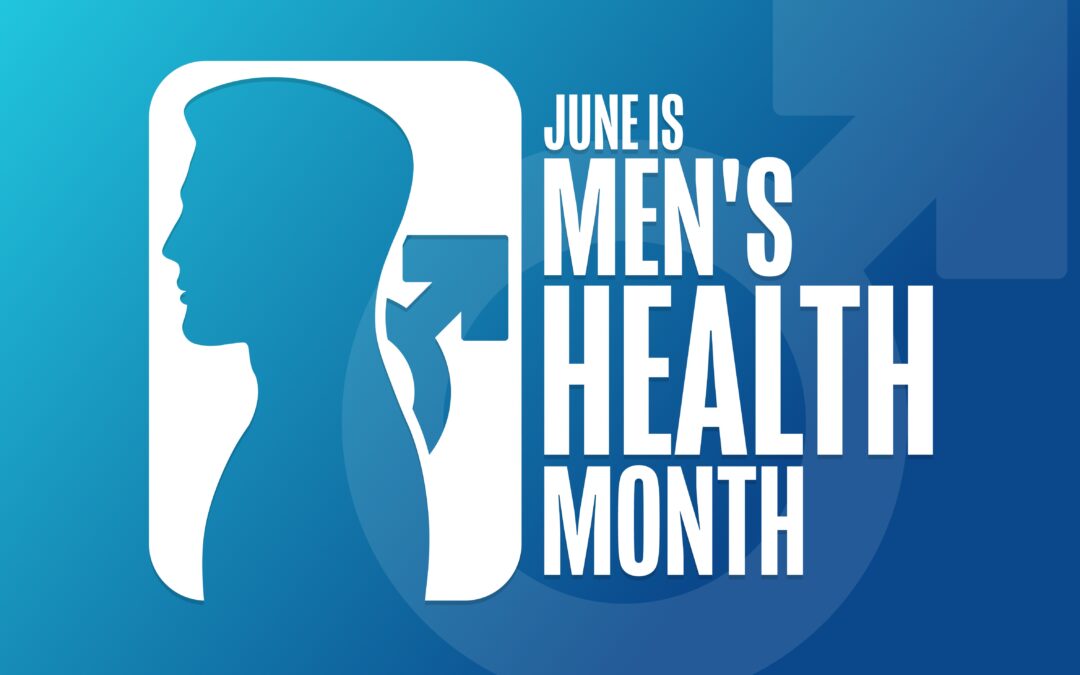June is recognized as Men’s Health Month, a time dedicated to raising awareness about the health challenges men face and promoting the importance of regular health checkups and preventive care. For men in recovery from drug and alcohol addiction, this month offers a crucial reminder to prioritize self-care and overall health and wellness. In this blog post, we will explore the significance of Men’s Health Month, the unique health concerns men may encounter during recovery, and practical tips for maintaining health and wellness in sobriety.
Understanding Men’s Health Month: Men’s Health Month aims to encourage men to take proactive steps towards better health by focusing on preventive measures, early detection of diseases, and healthy lifestyle choices. Statistics show that men are less likely to visit healthcare providers for routine checkups and are often diagnosed with serious health conditions at later stages than women. This trend underscores the need for heightened awareness and action around men’s health issues.
The Intersection of Men’s Health and Addiction Recovery: Men who are in recovery from drug and alcohol addiction face a unique set of health challenges that can impact their physical, mental, and emotional well-being. Addiction often takes a significant toll on the body, leading to a range of health problems that require ongoing attention and care. Some common health concerns for men in recovery include:
- Physical Health Issues:
- Liver Damage: Prolonged alcohol abuse can lead to liver damage, including fatty liver disease, hepatitis, and cirrhosis. Regular checkups and liver function tests are essential for monitoring liver health.
- Cardiovascular Health: Substance abuse can contribute to high blood pressure, heart disease, and other cardiovascular issues. Maintaining a heart-healthy lifestyle through diet, exercise, and stress management is crucial.
- Nutritional Deficiencies: Addiction often leads to poor dietary habits and malnutrition. A balanced diet rich in essential nutrients is vital for restoring physical health in recovery.
- Mental Health Concerns:
- Co-Occurring Disorders: Many men in recovery experience co-occurring mental health disorders, such as depression, anxiety, or PTSD. Integrated treatment that addresses both addiction and mental health is essential for successful recovery.
- Stress and Emotional Well-Being: Managing stress and emotions is a critical aspect of recovery. Developing healthy coping mechanisms and seeking support through therapy and peer groups can help.
- Social and Emotional Health:
- Relationship Strain: Addiction can strain relationships with family, friends, and loved ones. Building and maintaining healthy relationships through communication and support is important for overall well-being.
- Self-Esteem and Identity: Recovery is a time for rebuilding self-esteem and rediscovering one’s identity. Engaging in activities that promote self-worth and personal growth can be beneficial.
The Importance of Self-Care in Recovery: Self-care is a fundamental aspect of recovery from addiction. It involves taking deliberate actions to care for one’s physical, mental, and emotional health. Here are some essential self-care practices for men in recovery:
- Physical Health and Wellness:
- Regular Exercise: Physical activity is a powerful tool for improving mood, reducing stress, and promoting overall health. Aim for at least 30 minutes of moderate exercise most days of the week.
- Healthy Eating: A balanced diet with a variety of fruits, vegetables, lean proteins, and whole grains can help restore nutritional balance and support recovery.
- Sleep Hygiene: Quality sleep is essential for physical and mental health. Establish a regular sleep routine and create a restful sleep environment.
- Mental and Emotional Health:
- Therapy and Counseling: Engaging in individual or group therapy can provide valuable support and guidance in managing mental health and navigating the challenges of recovery.
- Mindfulness and Meditation: Mindfulness practices, such as meditation and deep breathing exercises, can help reduce stress and enhance emotional well-being.
- Creative Outlets: Engaging in creative activities, such as art, music, or writing, can provide a therapeutic outlet for expressing emotions and processing experiences.
- Building a Support Network:
- Peer Support Groups: Joining support groups, such as Alcoholics Anonymous (AA) or Narcotics Anonymous (NA), can provide a sense of community and shared experience in recovery.
- Family and Friends: Building and maintaining healthy relationships with supportive family members and friends is crucial for emotional support and accountability.
- Mentorship: Finding a mentor or sponsor who has experience in recovery can offer guidance, encouragement, and valuable insights.
- Preventive Healthcare:
- Regular Checkups: Schedule routine checkups with a healthcare provider to monitor overall health and detect any potential issues early.
- Screenings and Vaccinations: Stay up-to-date with recommended health screenings and vaccinations to prevent illness and manage existing health conditions.
- Substance Abuse Education: Educate yourself about the effects of substance abuse on health and the importance of maintaining sobriety for long-term well-being.
Conclusion: June’s Men’s Health Month serves as an important reminder for men to prioritize their health and wellness, especially those in recovery from drug and alcohol addiction. By focusing on self-care, preventive healthcare, and building a strong support network, men can enhance their overall well-being and strengthen their recovery journey. Remember, seeking help and support is a sign of strength, and taking proactive steps towards better health can lead to a more fulfilling and resilient life in sobriety.

